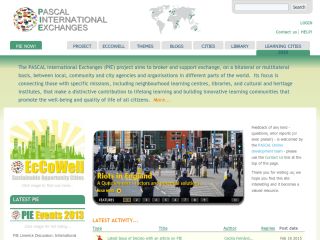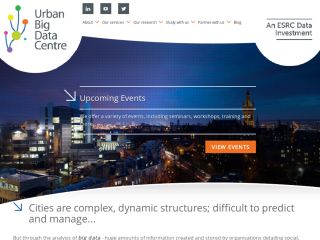I have personally grown into working for change at the local level - to do something within my own control, with people I know who are as passionate as I to change the world constructively. What I had felt, for far too long, was that I had been working at the wrong scale, and that rich problems and issues existed within my grasp and control which were sufficient stimulation for my own constructive change purposes. In particular, I have now tried to develop meaningful discussions between those known to me - in business, industry, the civil and voluntary services and the community at large - who are often apparently in conflict with each other, but who could work together to redesign the world into something useful and sustainable to them.
Rather than allow professionals to use their expertise alone to solve problems on our behalves, I try to set up trans-disciplinary teams, including problem owners, to work together to use conflict as a spur to create a new harmony through a re-alignment of values and desired outcomes.
I soon realised there were simple media tools available to help all express what they each aspire towards; these enable them, for the first time, to communicate their needs and wants meaningfully to each other. My research had shown such media enables the design of new systems for constructive change through collective action leading to mutually respecting benefits. I am also personally using social networking tools to drive for the sort of local change I believe is necessary. For, a comprehensive view of the approaches I am adopting and developing for universities to play a fuller role, go to http://pumr.pascalobervatory.org.
Let me present just one example of what I am doing, with my colleagues Gary Copitch, by way of illustration. I am deeply engage in developing, with many others, local citizens and communities to help them how to ‘have a voice for themselves’ about problems and issues that are important to them. People’s Voice Media ([email protected] or Google the phrase People’s Voice Media for more information) is a social enterprise I work with which is striving to develop 10,000 community reporters, across Europe, with the skills to enable them to express their views about topics important to themselves and then to share their views with others to strengthen their collective understanding and thus the potential for collective future constructive action. Go to the site mentioned above to see this approach, with a presentation presented by the reporters themselves
To date, we have coached over 3,000 such reporters to learn how to become better and better at this new form of locally responsive journalism, giving them a real ‘voice’ for themselves. And, increasingly the coaching of these reporters is done by the Community Reporters themselves. They have now become so professional that they have come together in their own European Institute for Community Reporters. This Institute is helping them spread knowledge of their activities and capabilities in extremely professional, and highly relevant, ways. Their new ability, to express these views powerfully and compellingly, enables them to share their views with each other using their own complementary and purposeful social networks. The BBC, which has moved half its workforce to Salford is using the skills of these reporter to express local views more poignantly.
Furthermore, the resulting conversations are getting deeper and more meaningful as the reporters gain confidence and skills and especially learn differently what they are saying to each other. During a week-long engagement with existing Community Reporters, those with a desire to develop their own ‘voice’ quickly learn to do it for themselves. They soon acquire the new skills for personal constructive change and how to make a real difference for themselves having a huge impact.
Universities could reach out to these reporters, citizens and communities beyond their traditional remits as the blog by Budd Hall and Rajesh Tandon recently suggested enabling true ‘knowledge democracy’ & social transformation - https://www.opendemocracy.net/transformation/budd-hall-rajesh-tandon/no-...
I also work as a Leonardo Ambassador to harness this potential further and have worked with both Wikipedia and TED to help open up these voices to our forward looking change managers. Thus would be a larger audience for themselves, but also give corporate managers quite a different perspective than they would otherwise normally have. In turn, Leonardo will be developing its own new tool to give substance to its principles.
Has a similar, parallel or alternative practical means been seen by members of PASCAL which complement the above approach? Please tell [email protected] to extend the discussion.







